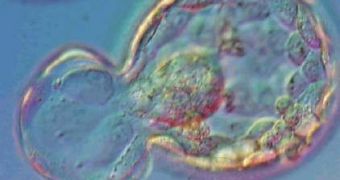Radiation and chemotherapy employed for stopping cancers often put an end to the function of the ovaries, leading to early menopause, accompanied by osteoporosis, low sex drive and sterility.
Nevertheless, a new technique of growing human eggs in the laboratory developed by a team at the Edinburgh University and reported by BBC News improves significantly the chances of young female cancer patients having a baby later in life. Immature eggs can be stored in an arrested development and later developed to maturity in lab conditions and employed in IVF fertilization.
At the moment, doctors just preserve a piece of the patient's ovaries, which can be implanted later in life, but this operation can also reintroduce cancer cells into the patient's body.
"Women who face infertility as a result of chemotherapy, or who want to put their biological clock on hold, could benefit from this system, however, there is a lot more research to be carried out before this technique could be safely applied within a clinical setting," said Dr Evelyn Telfer, from the university's School of Biological Sciences.
But this research could go beyond infertility issues, revolutionizing the obtaining of eggs for stem cell production, eliminating the use of the hybrid embryos made from cow eggs.
During the study, the immature eggs were preserved with the small follicles that protect and feed them in the ovary.
"Several years' work will need to be undertaken to establish if developing such immature follicles in vitro offers a risk-free option for preserving fertility and a means of obtaining donor eggs. There has been a moratorium in the UK for more than ten years on the use of immature sperm because of the feared risks associated with potential genetic dysfunction during maturation in vitro; similar concerns need to be excluded with the use of very early follicle growth in vitro before its introduction into clinical practice," Dr Simon Fishel, Managing Director, CARE Fertility Group in Nottingham told BBC News.

 14 DAY TRIAL //
14 DAY TRIAL //